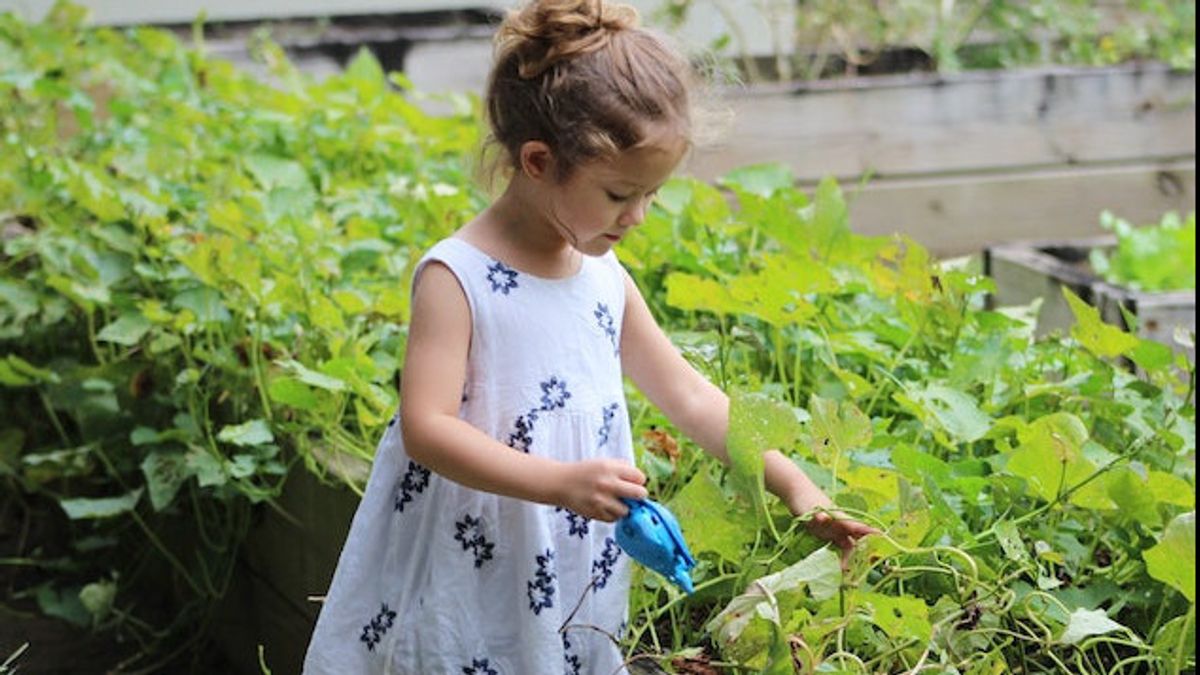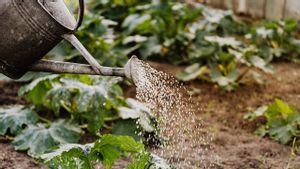JAKARTA - Gardens function more than just add to the attractiveness of your home page and develop your DIY skills. Gardening can also improve health, by uniting you with the environment and activities that help your mind and body function better.
Studies around the world directly associate the impact of gardening with better quality of life and this benefit can be obtained by everyone, from children to the elderly.
Launching Better Homes and Gardens, Monday, May 8, here are scientific reasons why gardening is good.
A study in the Netherlands tested cortisol, a natural steroid that helps your body respond to stress. And found that gardening after experiencing stressful events can reduce stress levels by more than reading.
The study also mentions that bacteria in soil can also help fight stress. The same bacteria have been noted to act as antidepressants and inflate a strong immune system.
Activities such as bringing plants, digging holes, cutting weeds, and encouraging grass cutting machines collectively involve each muscle in your body. The Center for Disease Control and Prevention categorizes gardening as moderate physical activity and can burn more than 300 calories per hour. Bigger activities such as cutting wood or transporting a mulsa bag can burn more than 400 calories.
One study shows gardening can help offset weight gains related to age. There are also other physical benefits, such as increasing dexterity and hand strength. Plus, makes you tend to sleep better.
Not only physical exercise, gardening is also good for your brain, especially as protection against dementia attacks. Gardening increases cognitive function and one study finds that it can lead to a 36 percent lower risk of dementia.
VOIR éGALEMENT:
Apart from plants, the body also needs sunlight. And outdoor activities such as gardening are the right activities for your body. Sufficient time in the sun is the most effective way to get vitamin D, which affects more than 1,000 different genes and almost every tissue in your body and increases metabolism to the immune system.
Vitamin D also has a positive effect on type 2 diabetes, heart disease, bone health, and depression. Yoursus may also benefit, because vitamin D is believed to help regulate digestive disorders.
Being in nature is good for self-being, including increasing mood. Gardening increases optimism and is associated with fighting depression and other mental illness. A study of emotional well-being related to daily public activities, such as walking, shopping, and eating outside, found that gardening consistently ranks in the top five activities that provide a sense of happiness. The same study shows the most positive effects felt by women and low-income participants.
It is not easy to choose a healthy diet, but gardening can help you. By gardening, you have the opportunity to eat fruits, vegetables, and spice plants. In addition, research also found that people who grow vegetables tend to eat the food.
One study found that children were more likely to eat fruit and vegetables when planted at home, while another study identified an increase in food literacy related to gardening among adolescents. In addition to the nutritional benefits, vegetable gardeners, in particular, reported greater positive emotional impacts than other garden tukans.
The English, Chinese, Japanese, Arabic, and French versions are automatically generated by the AI. So there may still be inaccuracies in translating, please always see Indonesian as our main language. (system supported by DigitalSiber.id)













